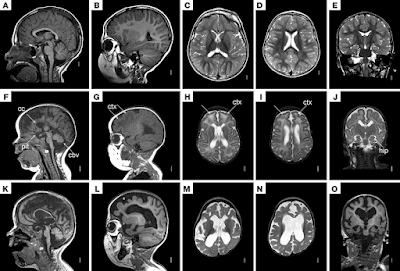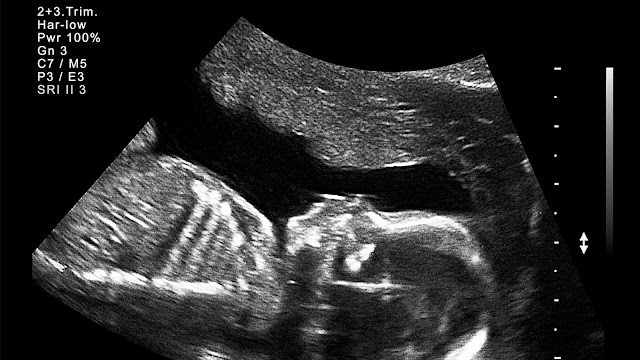Since its emergence in late 2019, the COVID-19 pandemic has been driven by the novel coronavirus SARS-CoV-2. Over time, like all viruses, SARS-CoV-2 has mutated, resulting in the emergence of new variants. These variants can have different characteristics, such as increased transmissibility, altered symptoms, or potential resistance to vaccines. Understanding COVID-19 variants is critical in controlling the spread of the virus, as well as informing public health decisions, vaccination efforts, and individual precautions.
In this blog post, we will explore what variants are, why they occur, notable variants of concern, and how they impact public health efforts globally.
What is a COVID-19 Variant?
A variant is a version of the virus that has undergone mutations in its genetic material (RNA, in the case of SARS-CoV-2). Mutations are natural and expected as viruses replicate, but most changes are insignificant. However, some mutations can give the virus advantages, such as:
- Increased transmissibility (making the virus spread more easily),
- Immune evasion (making it harder for the body to recognize the virus after vaccination or previous infection),
- Changes in severity (either more or less severe symptoms),
- Resistance to treatment or diagnostics.
When a variant shows one or more of these traits, it is closely monitored by scientists and public health agencies. The World Health Organization (WHO) categorizes variants into three groups: Variants of Interest (VOI), Variants of Concern (VOC), and Variants of High Consequence (VOHC). So far, no variant has reached the "high consequence" level.
Why Do Variants Occur?
Variants occur as a natural part of viral evolution. As viruses replicate, their genetic code can change due to errors made during replication. With each new infection, the virus has more opportunities to mutate. High levels of transmission increase the chances of mutations. While most mutations are harmless, some can give the virus new capabilities, such as spreading more quickly or evading immune defenses.
This is why efforts to reduce transmission — through vaccination, mask-wearing, social distancing, and hygiene — are so crucial. The more the virus spreads, the more opportunities it has to mutate into new variants.
Key COVID-19 Variants of Concern
Since the pandemic began, several variants have been classified as "Variants of Concern" by the WHO due to their potential impact on global health. Below, we explore some of the most significant variants.
1. Alpha (B.1.1.7)
- First detected: United Kingdom, September 2020.
- Characteristics: This variant had a mutation that made it more transmissible than the original strain. It led to a sharp rise in cases in the UK and spread to many other countries.
- Impact on health: While not more deadly, the increased transmission led to more infections and, consequently, more hospitalizations and deaths.
- Vaccine effectiveness: Existing vaccines remained effective against Alpha, though booster doses were recommended to enhance protection.
2. Beta (B.1.351)
- First detected: South Africa, May 2020.
- Characteristics: Beta was concerning due to its ability to partially evade the immune response, meaning previous infections or vaccinations might not offer full protection.
- Impact on health: This variant was associated with increased severity of illness in some cases.
- Vaccine effectiveness: Some vaccines showed reduced efficacy against Beta, especially with mild-to-moderate illness, but severe disease and death were still largely prevented by vaccines.
3. Delta (B.1.617.2)
- First detected: India, October 2020.
- Characteristics: Delta became infamous for its significantly increased transmissibility and more severe illness. It quickly spread across the globe, becoming the dominant strain in many countries by mid-2021.
- Impact on health: Delta led to higher hospitalization rates, especially in unvaccinated populations, and was responsible for new waves of infections in many countries.
- Vaccine effectiveness:Vaccines remained effective against Delta, especially in preventing severe disease, though breakthrough infections in vaccinated individuals became more common.
4. Omicron (B.1.1.529)
- First detected: South Africa, November 2021.
- Characteristics: Omicron is highly transmissible and has a large number of mutations in its spike protein, the part of the virus targeted by most vaccines. It quickly spread worldwide, outpacing Delta in many regions.
- Impact on health: Omicron has been associated with milder symptoms compared to Delta, especially in vaccinated individuals, though it caused a large number of infections due to its high transmission rate. This variant also led to increased hospitalizations, particularly in the unvaccinated and vulnerable populations.
- Vaccine effectiveness: Booster shots proved essential in maintaining protection against Omicron. Vaccines were less effective at preventing infection, but continued to offer strong protection against severe illness.
5. Other Variants
- Gamma (P.1): First detected in Brazil, Gamma showed some ability to evade immunity but was less transmissible than Delta.
- Lambda (C.37) and Mu (B.1.621): Variants of interest that were closely monitored due to concerns about immune evasion, though they did not spread as widely as the main variants.
How Do Variants Impact Vaccine Effectiveness?
The rise of new variants has raised concerns about vaccine efficacy. While the vaccines developed for COVID-19 were based on the original strain, they have generally remained effective at preventing severe illness, hospitalization, and death caused by variants like Alpha, Delta, and Omicron.
However, some variants have shown reduced vaccine efficacy when it comes to preventing infection, particularly in the case of Omicron. This is why booster shots have been widely recommended to increase immunity levels and offer stronger protection.
Preventing the Spread of COVID-19 Variants
Stopping the spread of COVID-19 variants requires both individual and collective action. The more the virus spreads, the more it can mutate. To slow the emergence of new variants, it is important to:
- Get vaccinated and boosted: Vaccination remains the most effective tool in reducing transmission, hospitalization, and death, even with the rise of variants.
- Wear masks in high-risk settings: Masks can help reduce transmission, especially in crowded or poorly ventilated areas.
- Practice good hygiene: Regular handwashing and sanitizing surfaces can reduce the spread of the virus.
- Social distancing: Maintain physical distance in high-risk areas, especially in places with active outbreaks.
- Test and isolate: Regular testing helps detect COVID-19 early, and isolating when infected prevents the spread to others.
- International cooperation: Global vaccination efforts, especially in low- and middle-income countries, are critical in preventing the spread of variants across borders.
The Future of COVID-19 Variants
As long as the virus continues to spread, new variants will likely emerge. The scientific community is working to stay ahead of the virus by monitoring new mutations and updating vaccines as needed. For example, the development of variant-specific vaccines or multivalent vaccines (targeting multiple strains at once) is underway to ensure continued protection.
Ultimately, the goal is to control the virus to the point where it becomes endemic, meaning it circulates at low, manageable levels similar to the seasonal flu. Public health measures, vaccination, and global cooperation will be critical in achieving this goal.
Conclusion
The emergence of COVID-19 variants is a natural part of viral evolution, but it has complicated the global response to the pandemic. Some variants, like Delta and Omicron, have significantly impacted transmission rates and vaccine effectiveness. However, vaccines remain a critical tool in fighting the pandemic, preventing severe illness and saving lives.
By understanding the nature of these variants and continuing to take precautions, we can protect ourselves and others from the ongoing threat of COVID-19. Staying informed, getting vaccinated, and following public health guidelines are the best ways to keep the virus in check and reduce the impact of future variants.



.jpeg)
.jpeg)




.jpeg)
.jpeg)

0 Comments